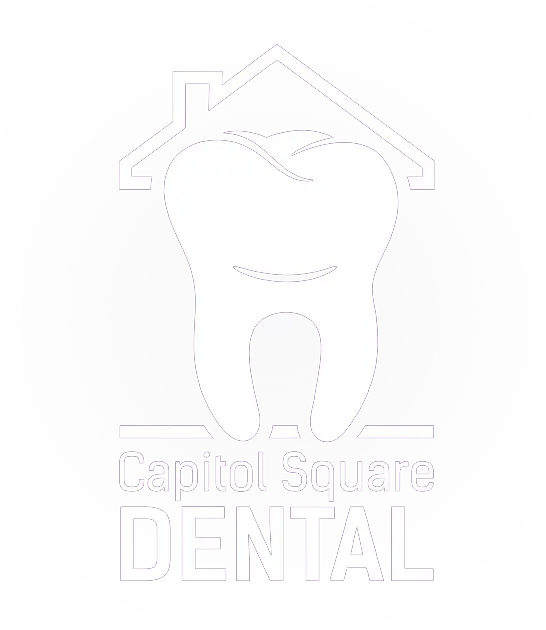Cosmetic Dentistry Cosmetic dentistry has skyrocketed in popularity over the past few decades. At Capitol Square Dental, we specialize in several cosmetic services aimed at improving the appearance of your teeth and overall smile. From minor cosmetic changes to full-tooth restorations, we have got you covered! Cosmetic dentistry has skyrocketed in popularity over the past few decades. At Capitol Square Dental, we specialize in several cosmetic services aimed at improving the appearance of your teeth and overall smile. From minor cosmetic changes to full-tooth restorations, we have got you covered!Zoom!® Teeth WhiteningIf you're planning to whiten your teeth, the safest and most effective way is to visit a dentist. We offer in-office whitening and at-home whitening kits that you can rely on to do the job gently and safely, such as Zoom! Teeth Whitening. Porcelain CrownA dental crown is a tooth-shaped cap that completely covers the visible portion of a damaged or decayed tooth. In previous years, a dental crown was fabricated using a gold or silver amalgam. These days, porcelain is usually the material of choice. Porcelain is a ceramic compound that mimics the light-reflective properties of natural enamel. It can also be textured and color-matched to your existing teeth. Thanks to porcelain and other ceramics, crowns can also be used to fix the aesthetics of an unsightly tooth. InvisalignCrooked teeth not only affect the aesthetics of your smile, but they can also be detrimental to your oral health. For instance, crowded teeth can be much more difficult to properly clean, leaving you at a greater risk for developing tooth decay and periodontal (gum) disease. Luckily, people in need of orthodontic care have more options than ever before. We specialize in Invisalign® clear aligner treatment. Invisalign is designed for patients who want a discrete and effective alternative to traditional metal braces. Dental VeneersA dental veneer is a razor-thin shell that is bonded to the front surface of a tooth. Like our dental crowns, our veneers are typically made from porcelain. Veneers can be used to fix teeth that are severely discolored, worn down, chipped or broken, misaligned, uneven, irregularly shaped, or even gapped. During the procedure, we have to remove a small amount of enamel to accommodate the thickness of the veneer. For this reason, the veneer procedure is considered irreversible. Dental BondingPatients looking for a less-invasive and more cost-effective solution may benefit from dental bonding. Dental bonding involves the application of composite resin, a putty-like material, to the surface of an aesthetically displeasing tooth. For example, dental bonding is an excellent solution for minor chips or cracks. During the procedure, the composite resin will be color-matched to the existing shade of your enamel, making it virtually indistinguishable from the rest of your tooth. Dental SealantsA dental sealant is a thin, plastic coating that prevents cavities and tooth decay. Sealants are usually applied to the occlusal (bite) surface of the molars and premolars. These teeth possess deep grooves and fissures that are much harder to clean, especially for children and teenagers. Sometimes the grooves are so thin that the bristles of a toothbrush are rendered essentially ineffective. A sealant will provide a more even brushing surface and seal off the enamel from harmful bacteria. Preventing tooth decay will ensure your child's smile remains beautiful for years to come! Schedule Your ConsultationIf you are unsatisfied with the current state of your smile, you may qualify for cosmetic dentistry! Call (380) 383-3497 to schedule your consultation now! |
 Phone(380) 383-3497 HoursTues: 9:00am - 6:00pm Thurs: 8:00am - 3:30pm M, W, F, S - By appointment only |